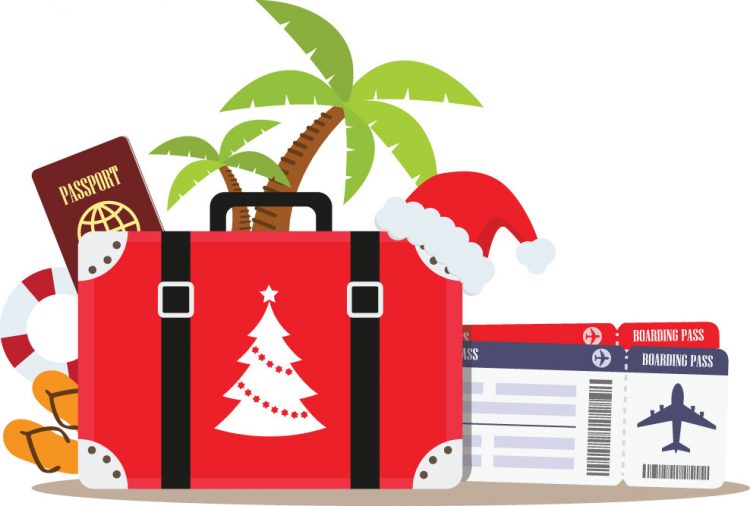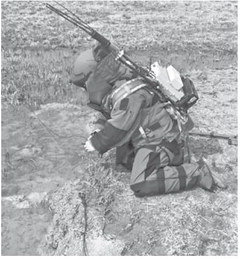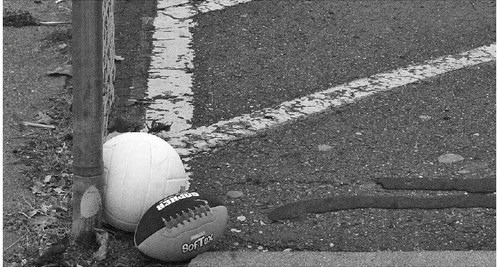Keep your dog happy and cared for during holiday travel


It’s the most wonderful time of the year, and to make it such, people need to make sure the holiday season goes smoothly. Oftentimes, holiday plans include travel and holiday travel includes packing furry friends.
According to AAA, 112.7 million people will travel between Dec. 23 and Jan. 2, and of that, around 102 million are traveling by car. To ensure there’s no stress about last minute things, start out this holiday season with a travel plan that is easy all, including the family pup.
Before taking the dog in the car for an hours-long road trip, try taking him for a short drive. If he seems anxious or stressed out by the car, make plans to leave him home with a trusted sitter.
If doing this, just make sure to leave emergency contact information (including for a vet), as well as detailed instructions on how to care for the furry friend. Pets can get scared easily in a new environment and if the dog runs off, whoever finds him will be able to find the owner.
No matter the method of travel, make sure the pup is wearing a collar at all times. Always put ID tags on the dog’s collar – they are worth the investment.
Additionally, consider microchipping the pet – while all pets should wear a collar with contact information, a microchip is the only form of ID for a pet that is permanent and cannot be lost. Just be sure to keep contact information upto- date with the microchip company.
While it is tempting to let a dog roam around in the car, especially if he/she generally well-behaved, one of the best things to do for a dog while traveling, is to restrain him. According to a study done by Kurgo, over 83 percent of respondents said they know it would be a safer option to restrain their dog in the car – however, only 16 percent of respondents actually do.
A dog car harness is a simple way to restrain the dog in the car and some come crash-tested. If allowing the dog to have some movement, there are other types of dog car restraints, such as a seatbelt tether or zip line.
Make sure to pack the essentials for the dog on a long car trip. Firstly, take food and water travel bowls, and their typical brand of food. Be sure to bring treats for the ride.
Secondly, a dog travel bed will keep him comfortable and may make him feel less anxious.
Finally, if traveling somewhere cold, pack a dog jacket. This will not only keep him comfortable on the ride, but at the destination, as well.
The Humane Society of the United States recommends against air travel for pets, unless absolutely necessary. Air travel can not only be very stressful for pets, but very dangerous, as well. It can cause oxygen deprivation and heat stroke, or, during the winter months, hypothermia.
If taking the pup on a plane, make sure to double-check all rules with the airline and travel with him in the cabin whenever possible. This will be less anxiety-inducing and the dog will feel a higher level of comfort knowing his owner is right there.
However, generally, only small dogs are allowed in airplane cabins, so if the dog does not meet the size requirements, consider leaving him at a kennel or with a sitter.
Once arriving at the destination, it may be tempting to be lax with the dog (e.g. letting him run wild or feeding him leftovers).
Don’t let the dog run loose if he is unsupervised. This is especially important at Christmastime – an energetic dog could knock into a Christmas tree and break ornaments or, worse, knock the tree onto himself. To avoid this, make sure the Christmas tree is completely secured before letting the pup anywhere near it.
Another danger of Christmas trees, is tinsel. Animals are attracted to shiny objects, but tinsel, if ingested, can lead to vomiting and dehydration. The same goes for poinsettias – these plants are poisonous to animals.
In regard to feeding the dog during the holidays, some human foods are best left off their plates. Sweets are a big no, especially chocolate. Also, fatty and spicy foods should be avoided, to avoid indigestion and a potential trip to the vet.




